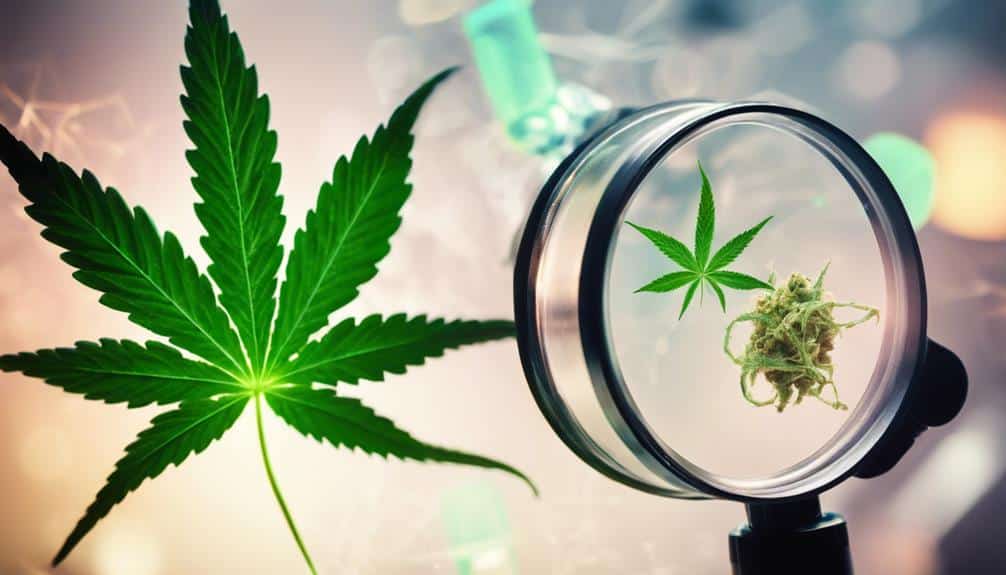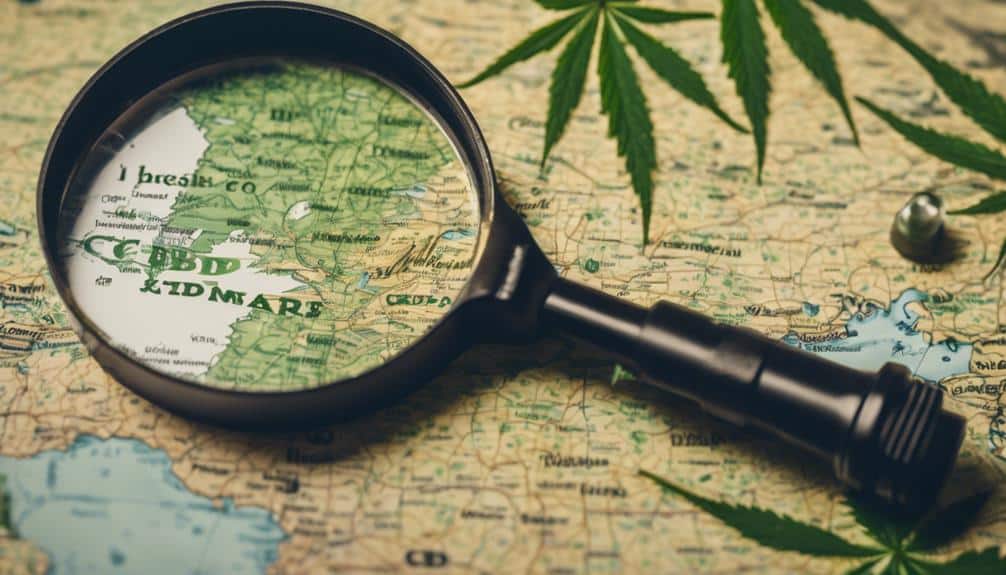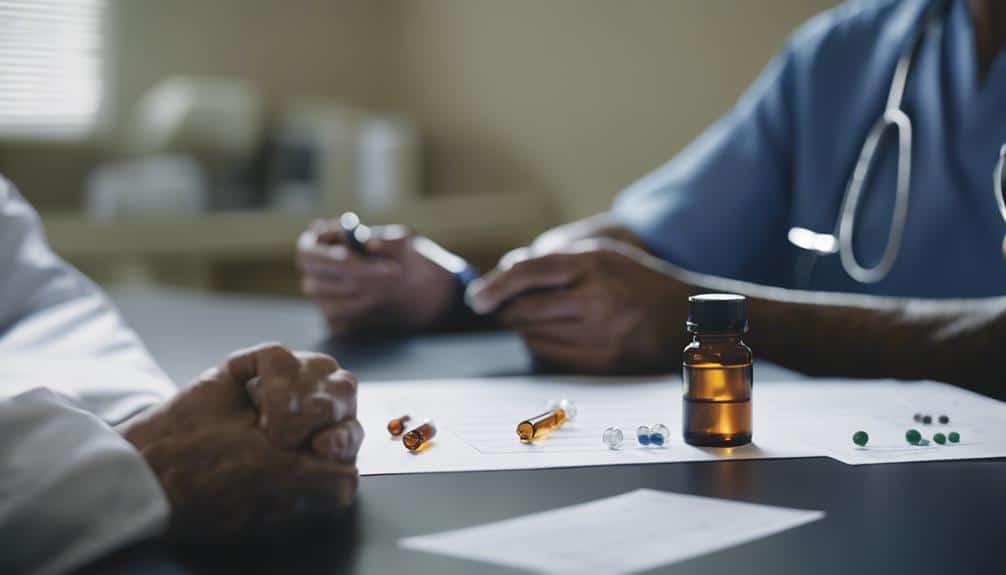If you’re a patient in Delaware considering the use of CBD, it’s crucial to be well-informed about the complex science behind it. You’ve likely heard about its potential health benefits, but do you understand how CBD interacts with your body’s endocannabinoid system? Or how its bioavailability affects absorption rates? What about potential interactions with the cytochrome P450 enzyme system? There’s a lot to comprehend before you can safely and effectively incorporate CBD into your health regimen. Are you ready for a deeper exploration of these scientific intricacies?
Understanding CBD and Its Origins

To fully grasp the science of CBD in Delaware, it’s essential first to understand what CBD is and where it originates. Cannabidiol (CBD) is a compound found in the Cannabis Sativa plant, renowned for its therapeutic attributes. Unlike THC, another compound in the same plant, CBD doesn’t induce a ‘high,’ making it an attractive option for those seeking relief from various ailments.
Let’s examine the methods used to extract CBD, which are critical in producing this compound. The common methods include CO2 extraction, ethanol extraction, and oil extraction. Each method has its advantages and disadvantages but all aim to isolate and preserve the purity of CBD.
Next up is Cannabinoid biosynthesis – this natural process allows the Cannabis Sativa plant to produce cannabinoids through a sequence of chemical reactions resulting in compounds like CBD. Understanding this process is vital as it impacts the quality and efficacy of the final product.
The Science Behind CBD
When you delve into the science behind CBD, you’ll find a complex world of molecular interactions, biological pathways, and physiological responses. CBD interacts with your body’s endocannabinoid system by binding with certain receptors to cause a variety of effects. This system plays a crucial role in maintaining the body’s homeostasis or balance.
An essential aspect to understand is CBD bioavailability, which concerns how much of the ingested CBD actually enters your bloodstream. Methods such as sublingual administration and inhalation offer higher bioavailability, meaning your body can utilize more of the CBD. However, factors like the quality of the CBD and your individual metabolism can also affect this.
Now let’s discuss how CBD interacts with other substances. Mainly, it affects the cytochrome P450 enzyme system in your liver responsible for metabolizing many drugs and substances. Therefore, CBD can potentially interfere with how other medications you may be taking are metabolized.
In essence, understanding these scientific aspects can help you comprehend the potential of CBD and make informed decisions about its use.
Potential Health Benefits of CBD

Exploring potential health benefits reveals numerous studies suggesting its efficacy in alleviating symptoms of various health conditions. Understanding these benefits can prove valuable if you’re interested in serving others.
Here are some potential health benefits of CBD:
- Pain Relief: CBD may interact with pain receptors in the brain, potentially reducing chronic pain.
- Anxiety and Depression Reduction: Studies suggest that CBD may have antidepressant-like effects and can reduce anxiety.
- Neuroprotective Properties: CBD could potentially treat neurological disorders like epilepsy and multiple sclerosis.
- Heart Health: Some research indicates that CBD may benefit the heart and circulatory system, including the ability to lower high blood pressure.
- Substance Abuse Treatment: CBD has been shown to modify circuits in the brain related to drug addiction.
However, while considering CBD, you must also consider ‘CBD Dosage Guidelines’ and ‘CBD Drug Interactions’. Dosage varies depending on factors like weight, age, the condition being treated, and individual body chemistry. Moreover, CBD could interact with other medications you’re taking. Always consult a healthcare professional before starting any new supplement regimen.
Possible Side Effects and Risks
CBD presents numerous potential health benefits; however, it’s equally important to be aware of possible side effects and risks. For instance, interactions between CBD and other drugs can alter how your body processes certain medications leading to adverse effects. Always discuss with your healthcare provider before integrating CBD into your regimen if you’re taking other medications.
In addition to this, some people might experience allergic reactions to CBD. Symptoms can range from mild skin rashes to severe anaphylaxis – a life-threatening condition requiring immediate medical attention. Remember that everyone’s body responds differently to substances; hence reactions vary from person to person.
Drowsiness, dry mouth, and lowered blood pressure are common side effects. While these might not sound too serious, they can be detrimental, particularly for individuals with existing health conditions. For instance, a sudden drop in blood pressure can be dangerous for someone with heart problems.
CBD Legal Status in Delaware

Having considered the potential side effects and risks of CBD, it’s also worth examining its legal standing in Delaware. As you navigate the complexities of Delaware CBD regulations, it’s crucial to understand state-specific CBD usage.
Unlike some states, Delaware has embraced the benefits of CBD and has set up regulations that allow its use under certain conditions. Here are some key points to bear in mind:
- CBD derived from hemp is legal in Delaware as long as it contains less than 0.3% THC.
- Delaware allows the use of CBD in food and beverages.
- The production and sale of CBD products are regulated by Delaware’s Department of Agriculture.
- Medical marijuana, which can contain higher levels of CBD, is legal for qualified patients.
- Recreational marijuana remains illegal.
This legislation creates a controlled environment where patients can access CBD treatments and researchers can continue to explore its potential benefits and risks. Remember that knowledge is power – understanding the legal landscape allows you to make informed decisions about incorporating CBD into your healthcare strategy. Always stay updated with the latest developments in Delaware CBD regulations to ensure your use complies with state laws.
Choosing the Right CBD Product
When it comes to selecting the right CBD product for your needs in Delaware, consider factors such as the product’s origin, extraction method used, concentration of CBD, and third-party lab testing results.
The origin of the product can provide information about the growing conditions and quality of the hemp plant used, which directly impacts the purity and efficacy of the CBD. The extraction method can affect the product’s overall quality and safety – CO2 extraction is often considered most efficient and cleanest.
CBD Dosage Guidelines are another critical factor. Start with a low dosage and gradually increase it until you find what works best for you. Remember that everyone’s body reacts differently to CBD; personal experimentation is key.
Last but not least, Product Purity Verification is crucial. Look for products that have undergone third-party lab testing. These results should be readily available and transparent, providing reassurance that the product is free from harmful contaminants and that its stated CBD concentration is accurate. In conclusion, your choice should be based on these scientific considerations to ensure you select a safe and effective CBD product.
Consulting With Healthcare Professionals About CBD

Before starting your journey with CBD, consult with a healthcare professional who can guide you considering your individual health status and potential drug interactions. They can offer personalized dosage recommendations based on your specific needs and conditions.
Your consultation should cover:
- Provider perspectives on CBD: Understanding your healthcare provider’s viewpoint on CBD use is crucial. It will allow you to gain insights into the potential benefits and risks associated with CBD.
- Your medical history: Discuss your past and current health conditions to prevent any adverse reactions.
- Potential drug interactions: CBD can interact with certain medications, potentially causing side effects.
- CBD dosage recommendations: Your healthcare provider can recommend an appropriate dosage based on your health status.
- Follow-up and adjustment: Regular check-ins with your healthcare provider are important for monitoring your response to CBD and adjusting the dosage if necessary.
Conclusion
Understanding the science of CBD empowers you to make informed decisions about its use. Understand its origins, potential benefits, possible risks, legal status in Delaware, and consult with healthcare professionals. As you explore CBD, remember that understanding the complex processes involved in its absorption and interaction with your body is key. Armed with knowledge, you’re ready to integrate CBD into your health routine safely and effectively.
We invite you to visit Cannabis Docs of Delaware or give us a call at (855) 420-6797 for further assistance. We’re here to answer any questions you may have and guide you through the process. We pride ourselves on our friendly approach; don’t hesitate to reach out. We look forward to helping you make the most of your CBD experience.
The post The Science of CBD: What Delaware Patients Should Know appeared first on Delaware Cannabis Docs.
source https://delawarecannabisdocs.com/the-science-of-cbd-what-delaware-patients-should-know/

No comments:
Post a Comment